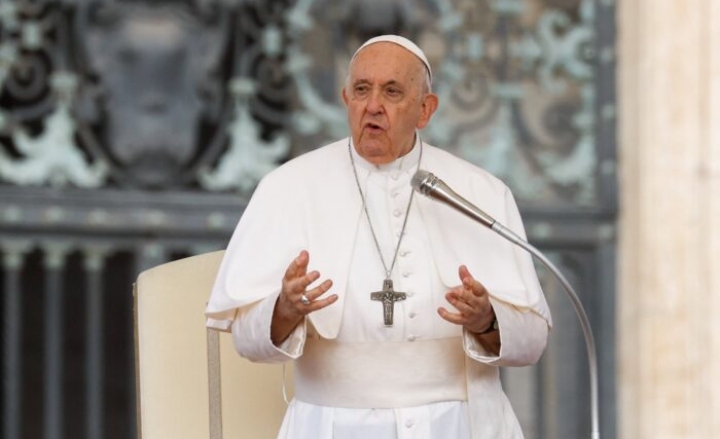As the Catholic world mourns the passing of Pope Francis, attention now shifts to the solemn and historic task ahead: the selection of a new pontiff.
Soon enough, cardinals of the Roman Catholic Church will enter the Sistine Chapel and initiate the secretive conclave ballot process to elect a new pope.
While the Holy Spirit is said to guide the election, several names have already emerged as frontrunners in the race to lead the world’s 1.3 billion Catholics.
Jean-Marc Aveline (France)
The Archbishop of Marseille, elevated to cardinal in 2022, Jean-Marc Aveline, 66, is viewed as a moderate in line with Pope Francis’ ideology.
Despite his cautious stance on blessing same-sex couples, Aveline is celebrated for his theological depth and pastoral approach.
His resemblance to Pope John XXIII has not gone unnoticed in France, with speculation that a future pontiff might even adopt the name “John XXIV”—a notion Pope Francis himself once joked about.
Peter Erdo (Hungary)
Erdo, 71, the Archbishop of Budapest and Hungary’s Primate is considered one of the more conservative contenders.
Having twice chaired the Council of European Episcopal Conferences, his European ties could garner him strong support among cardinals from the continent.
Erdo has voiced staunch opposition to same-sex unions and was critical of Pope Francis’ pro-migrant message in 2015.
Pietro Parolin (Italy)
Often viewed as a diplomatic heavyweight, Parolin, 70, has served as the Vatican’s Secretary of State since 2014.
His role in the 2018 Vatican-China agreement and in negotiations across the Middle East has earned him global recognition, though not without controversy.
Analysts say his moderate tone and experience make him a strong continuity candidate.
Marc Ouellet (Canada)
At 80, Ouellet may be considered a long shot due to age but remains a respected figure within Vatican circles.
Once a leading candidate in the 2005 and 2013 conclaves, Ouellet has led the Vatican’s Congregation for Bishops and is aligned with conservative doctrine, including opposition to women in clerical roles and same-sex marriage.
Luis Antonio Tagle (Philippines)
Known affectionately as the “Asian Francis,” Tagle, 67, is widely admired for his humility and inclusive tone.
As the former Archbishop of Manila and current pro-prefect of the Dicastery for Evangelization, Tagle has criticized the Church’s harsh rhetoric toward marginalized groups and is seen as a potential bridge between tradition and reform.
Matteo Zuppi (Italy)
A progressive voice in the Italian Church, Zuppi, 69, is the Archbishop of Bologna and current head of the Italian Episcopal Conference.
He has backed Pope Francis’ decision to bless same-sex couples and is praised for his outreach to the poor, his grassroots pastoral style, and his peacemaking efforts, including missions in Ukraine. However, he remains opposed to the ordination of women.
Fridolin Ambongo (Congo)
At 65, Ambongo is one of the youngest candidates. The Archbishop of Kinshasa and member of Pope Francis’ Council of Cardinals, he represents the growing influence of the African Church.
Despite his alignment with Francis on social justice, he opposed the pope’s 2023 directive on blessing same-sex unions, calling such relationships “intrinsically evil.”
Robert Sarah (Guinea)
A traditionalist and former head of the Congregation for Divine Worship, Sarah, 79, has long been a favourite among conservative factions.
He has decried same-sex blessings as “heresy” and described abortion as “the greatest tragedy of our time.”
Known for his stern views on Islam and secularism, his election would signal a sharp turn toward orthodoxy.
Mario Grech (Malta)
Grech, 68, currently serves as secretary general of the Synod of Bishops and has evolved in his views over the years.
Once a conservative voice, he has since shown openness to LGBTQ+ inclusion and supported the idea of women deacons. His nuanced stance could appeal to those seeking a balanced leadership.
Meanwhile, this conclave comes at a critical juncture in Catholic history. Pope Francis’ decade-long papacy was marked by a progressive agenda, global diplomacy, and renewed focus on the poor and marginalized.
His successor will inherit a deeply divided Church torn between tradition and reform, grappling with declining membership in the West, and expanding influence in the Global South.
The cardinals cloistered within the walls of the Vatican, must now discern not just who the next pope should be but what kind of pope the Church needs.


